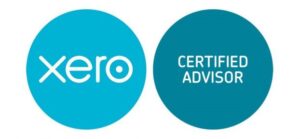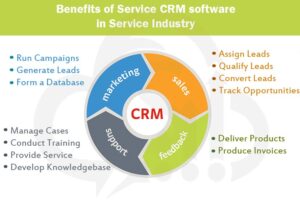Changes To Employment Pass and S Pass Requirements in Singapore [2022]
The Singapore Government has recently announced a slew of changes to the pass requirements for foreigners applying to work in Singapore under Employment Pass and S Pass.
These impending tightening measures will force Singapore businesses to review their foreign hiring strategies. These changes include increasing the minimum salaries and decreasing the quotas for S passes for certain sectors.
Increase In Salary Threshold For Employment Pass Holders
The new minimum qualifying salary for Employment Pass applicants increases from SGD4,500 to SGD5,000. For foreigners working in the financial sector, the qualifying salary increases from SGD5,000 to SGD5,500.
This new measure will take effect from the 1st of September 2022. For existing Employment Pass holders who are renewing their work passes, this new requirement will take effect from September next year (2023).
Increase In Salary Threshold For S Pass Holders
Similarly, the new minimum qualifying salary for S Pass applicants increases from the current SGD2,500 to SGD3,000. For individuals working in the financial sector, the minimum qualifying salary increases to SGD3,500.
This new measure will take effect from the 1st of September 2022.
The government will further increase the minimum qualifying salary for S Pass holders in 2023 and 2025. The government will announce the exact increment details nearer to the date.
The new rules will apply to existing S Pass holders from September 2023. This is to give businesses enough time to plan and adapt to the new measures.
Changes To Employment Pass Application Assessment
From September 2023, the government will implement a new way of assessing all foreign applicants for the employment pass.
Known as the Complementary Assessment Framework (Compass), it is a point-based system that will evaluate the applicant based on four foundational and two bonus criteria.
The applicant will be scored in the following four foundational criteria:
- Salary - relative to the salary norms of the professionals, managers, executives and technicians (PMETs) in the domestic workforce for the sector
- Qualification - based on the EP applicant’s qualification
- Diversity - whether the applicant improves nationality diversity in the firm
- Support for resident employment - the firm’s employment of resident PMETs as a percentage relative to industry peers
The applicant will be scored on each of the above 4 items and assigned points (0, 10 or 20) for each of them.
The applicant will need at least 40 points in total to succeed in their employment pass application.
The bonus criteria consider skills that are short in supply to support strategic economic priorities.
Conclusion
These new changes are a step towards bringing in a complementary foreign workforce that is high in calibre.
Companies will now have to revise their selection process to better identify potential applicants who fit the various criteria listed above.
If you have any questions with regards to the application of passes, do not hesitate to get in touch with us!
The Importance of HR Policies in Maintaining a Successful Business
As a business owner, you know that it is important to have a team of qualified employees in order to be successful. But did you know that having effective HR policies is just as important? In this blog post, we will discuss the importance of HR policies in maintaining a successful business. We will also take a look at some of the most important policies every business should have in its employee handbook.
What are HR policies and why are they important for businesses?
Human resources policies are rules that govern the way employees interact with each other and their employers. They provide clear guidance on issues such as sexual harassment, drug use in the workplace, discrimination or retaliation for reporting wrongdoing etc. These policies are necessary because they help establish a culture of trust between employees and employers by providing guidance for every aspect of employment from hiring to firing.
There are a number of reasons why it is important for businesses to have effective HR policies in place. First, good HR policies can help protect the company from potential lawsuits. Second, well-written policies can help reduce the risk of employee misconduct. Third, effective HR policies can improve employee productivity and morale. And finally, good HR policies can help create a positive work environment that is conducive to employee retention.
What should be included in an effective HR policy framework?
When drafting HR policies, it is important to keep in mind the following:
- The policy should be clear and concise
- The policy should be easy to understand
- The policy should be tailored to your specific business needs
- The policy should be updated regularly as needed
It is also important to consider the following policies in your employee handbook:
- Anti-Harassment Policy
- Drug and Alcohol Use Policy
- Equal Employment Opportunity (EEO) Policy
- Employee Conduct Policy
- Grievance Procedure
How can businesses ensure that their HR policies are up-to-date and compliant with current legislation and best practice standards?
In order to ensure that your HR policies are up-to-date and compliant with current legislation, it is important for businesses to conduct regular audits of their employee handbooks. This ensures that any changes made by government bodies or industry regulators have been taken into consideration when drafting new policies and procedures within the organization. It also allows employers to identify any gaps that may exist between their current employee handbooks and other resources such as HR guides published by professional bodies like SHRM (Society for Human Resource Management). In addition, regular audits can help ensure that all employees are aware of these policies so they know how to respond if an issue arises at work.
What steps can businesses take to implement effective HR policies?
To implement effective HR policies, it is important for businesses to include all relevant stakeholders in the policy drafting process. This includes employees, managers and owners or shareholders. It also means taking feedback from these different groups into account when writing hr policies that are fair and transparent for everyone involved with your organization. Allowing input from employees helps to ensure that policies are practical and realistic while obtaining buy-in from managers can help to ensure that these policies are enforced properly.
Finally, involving shareholders or owners in the process can help to avoid any potential conflict down the road over how hr policies are implemented and interpreted within your company.
How should I get started with HR policies?
Whether you are a small company with a handful of employees or a larger organisation, HR issues will bound to arise. Precious time and resources will be wasted fixing these issues if there is no proper HR framework in place to guide the stakeholders.
SG Company Services Pte Ltd can assist you with the development and implementation of HR policies and strategies in your business. To find out more, get in touch with us today!
Buying A Private Residential Property in Singapore - For Foreigners
For many foreigners, the idea of buying a private residential property in Singapore is an exciting one. With little or no restrictions on foreign ownership, it can be a great way to have a vacation home in the tropics but still keep your main residence in another country. For others, this idea will be mooted when they decide to relocate their family to Singapore for good.
But before you commit to making this investment abroad, there are some things that you should know about how to buy a house in Singapore as a foreigner. In this guide, we will go over what steps need to be taken and what fees need to be paid for purchasing property here!
Can foreigners buy a private residential property in Singapore?

In Singapore, foreigners are only allowed to own private residential property in Singapore. Public housing or commonly known as HDB is affordable housing extended only to Singapore Citizens and Singapore Permanent Residents.
For private residential property, there are two main categories:
- Non-landed private residential property
- Landed private residential property
With the exception of Sentosa, which is a specially zoned landed enclave, foreigners are only allowed to buy non-landed private residential property (condominiums).
In Singapore, as long as you are sound legally and financially, there are generally no restrictions to the ownership of a condominium. This is unlike some countries such as Thailand where they impose a foreigner ownership quota on condominiums.
You are also free to sell to anyone (regardless of citizenship status) should you choose to divest this property investment in the future.
How much does it cost to buy a private residential property in Singapore?

Besides the cost of the property, there are taxes and fees involved which we will address in this section.
As of 2022, the Singapore government has introduced new cooling measures to tackle the red hot property market. This involved raising the stamp duties payable when buying a property.
Stamp Duties For Buying

Besides the value of the property, this is the next biggest cost when it comes to buying the property.
As a foreigner(individual), you are liable to pay the following stamp duties upon buying:
Buyer Stamp Duty:
- 1% on the first $180,000
- 2% on the next $180,000
- 3% on the next $640,000
- 4% on balance amount above $1,000,000
Additional Buyer Stamp Duty:
- 30% on the property purchase price
If you choose the buy the private residential property under an entity (company or association), the additional buyer stamp duty will be taxed at 35%.
Other Fees To Note
Buying involves engaging a lawyer for conveyancing. Depending on the case complexity and value of the property, the legal fees payable will vary. In most cases, a budget of $3,000 to $4,000 should suffice.
If you engage an agent to help with the property search and purchase, you may also be liable to pay agency fees. In Singapore, the common practice for private residential property is the buyer's representing agent will co-broke and share the commission with the seller's representing agent. That means the buyer (you) do not have to pay agency fees out of your own pocket.
However, do note that while this is a common practice, this is not a rule that is enforced throughout. So it will be best to seek clarity with the agent you intend to engage.
What are the procedures involved in buying a property?

If there are no special arrangements, a private property transaction typically takes about ten to twelve weeks to complete.
Once your negotiation for a property is successful, here are the typical flow of events:
- 1% option fee - quite a standard practice, 1% of the agreed property purchase price is paid to the seller in exchange for the option to purchase agreement. This 1% option fee will be forfeited by the seller if the buyer chooses not to proceed with the purchase after the given cooling period.
- 4% option fee - most option to purchase agreement expires in 14 calendar days (unless otherwise agreed). During this period, the buyer ought to have their financials sorted and confirm they will proceed with the purchase. Once confirmed, the buyer will issue a 4% payment (to be held in trust by the conveyancing lawyer) and sign the option to purchase agreement. After this point, the buyer will be legally bound to complete the sale of the property.
- After this is done, there is generally no action required by the buyer. The conveyancing lawyers from both sides will liaise and work towards the completion of the property sale. The lawyer will advise the buyer on the payment schedule and timeline of events.
Other Important Things To Note
Seller Stamp Duty

While you will be free to sell the property to anyone and at any time after you take ownership of the property, do take note that there is a Seller's Stamp Duty imposed on anyone who wishes to dispose of their property within a 3 year holding period.
- Up to 1 year - 12%
- More than 1 year and up to 2 years - 8%
- More than 2 years and up to 3 years - 4%
- Beyond 3 years - no SSD payable
This seller stamp duty is imposed on the selling price of the property.
Tax on Disposal of Property

There is no capital gains tax imposed on your sale of the property. Unless you are deemed to be in the business of trading properties. Which in that case, the gains will be classified as revenue in nature.
There is also no inheritance tax applicable in Singapore as of the writing of this article.
Property Tax
This is a tax on the property assessed value. Payable yearly, the applicable tax rates ranges up to 20% depending on whether the property is owner-occupied or non-owner occupied. In other words, you are liable to pay higher property tax if the property is bought for investment purposes.
Income Tax
If the property is rented out, the rental collected is considered as income to you. As such, depending on the rental collected yearly, you may be liable to pay tax based on personal income tax rates for foreigners.
Seeking to invest in a property in Singapore? Our experienced team will be able to craft a suitable roadmap for you. Come talk to us today!
How To Write A Fair Employment Contract in Singapore
The employment contract is one of the most important documents in an employment relationship. It lays out your obligations, as well as those of your employees. An employment contract that you fail to draft properly can lead to a legal battle that you will not want to be involved with. To avoid these issues, let's review how to write a fair employment contract in Singapore!
Have A Comprehensive Annual Leave Policy

One of the most important clauses in any employment contract is the annual leave clause. This clause should specify the number of days of paid leave your employees has, as well as the national holidays they will be given off.
You should also consider having a comprehensive maternity/paternity leave policy in place.
You ought to specify if the employee can carry over any unused leave to the next calendar year. In some cases, companies will stipulate a maximum number of days of unused leave that can be carried over.
There should also be a clause addressing the treatment of unused leave upon the termination of employment. It is a common practice to allow for compensation in cash for any unused leave.
Recognise Work Done On Public Holidays

Another clause in employment contracts should address the treatment of work done on public holidays. This is particularly relevant for Singaporean companies since they are usually open seven days a week with reduced operating hours depending on which day it is.
Under the Employment Act in Singapore, employees who have worked at least half their usual working time on National Days or Public Holidays are entitled to one day's extra pay. This entitlement does not apply if the employee is absent from work on that particular day without permission, or works a shift of six hours or less.
However, your employment contract can provide for different arrangements between you and your employees with regards to working on public holidays. You could agree to pay double the employee's rate of pay for any work done on public holidays.
Where employees are not covered under the Employment Act, it is advisable for employers to be flexible and acknowledge employees' efforts when they put in additional hours during public holidays.
Be Clear on Terms and Conditions For Bonuses, Annual Wage Supplement and Commissions

Your employment contract should also specify the terms and conditions for bonuses, annual wage supplements and commissions. This will avoid any disputes or misunderstandings that could potentially arise in the future.
For example, you may want to stipulate a certain number of years of service before an employee is eligible for a bonus. You could also agree on a percentage or a fixed sum that you will pay as a bonus.
Annual wage supplements are typically given in lieu of annual leave and should be clearly laid out in the employment contract. You also need to specify how and when to make commission payments, and the conditions to meet to be eligible for such commissions.
Be Clear On Medical Leave and Benefits

You should also be clear on the medical leave and benefits that your employees are eligible for. This will ensure that there is no confusion when an employee needs to take time off for medical reasons.
In Singapore, employees generally have 14 days of paid medical leave per year. This entitlement increases to 16 days if the employee has worked for the company for more than two years.
Your employment contract can provide for a longer or shorter medical leave entitlement, but it cannot be lower than the statutory minimum.
You should also specify which illnesses and injuries are under the medical leave policy. In most cases, employees are entitled to full pay during their medical leave. However, there are a few exceptions - for example, if the employee is absent from work due to an illness that is not covered under the employment contract.
You are also encouraged to recognise medical certificates from all registered medical practitioners.
Reimburse Expenses For Work-Related Activities

Your employment contract can also specify that the company will reimburse employees for work-related expenses. This could include travel and accommodation costs, as well as the cost of purchasing work-related equipment.
It is advisable to state the maximum amount that the company is willing to reimburse so that there is no confusion or disputes in the future.
If these details are in the employee handbook, do go over the details before he or she joins your organisation.
Provide Fair Termination Terms

A fair employment contract should also include a section on termination. This will ensure that both parties are clear on the grounds for termination, as well as the notice period and any severance payments that are owed to the employee.
In Singapore, either party can terminate an employment contract provided there is a valid reason for doing so. The most common reasons for termination are redundancy, misconduct and poor performance.
The notice period ranges from one to four weeks, depending on the length of employment. Employees who remain employed for more than two years are typically eligible for a severance payment of one month's salary.
Implementing A Fair Training Agreement

In addition to the employment contract, you should also consider implementing a fair training agreement. This document will outline the employee's training and development needs, as well as the company's expectations towards training and attendance.
It is important that both parties agree to the employee's training schedule to prevent confusion or conflict in the future.
The training agreement should also specify the notice period the employee should give when unable to attend a training session. This will help to prevent any misunderstandings and ensure that both parties are aware of their obligations.
When it comes to hiring, the last thing you want is a miscommunication that could lead to an expensive dispute. A fair employment contract should be clear and concise so that all parties have a common understanding of each other’s rights and obligations.
What Is A Certificate Of Residence (COR) and Why Does Your Business Need One?
The Certificate of Residence (COR) is a letter issued by the Inland Revenue Authority of Singapore (IRAS) to certify that the company is a tax resident of Singapore to claim tax benefits under the DTAs that Singapore has concluded with other jurisdictions. It is necessary to prove to the foreign tax authority that the company is a Singapore tax resident.
In countries where a DTAA with Singapore is in force, the COR may be required by that country's tax authority to determine if income from sources within its territory can be taxed at all or to what extent.
An example would include Germany whose domestic laws allow taxation of income earned by a Singapore company, regardless of whether the business has a permanent establishment in Germany or not. In such cases, the COR would be presented to the German tax authority as evidence that the Singapore company is indeed subject to tax in Singapore on its worldwide income.
As a result, the company gets to enjoy a lower corporate tax rate in Singapore as compared to that of Germany.
Who Is Eligible To Apply For A Certificate Of Residence?
A COR may only be issued to a company that is a tax resident in Singapore.
Below are three forms of entities that do not qualify for the COR:
Foreign-owned investment holding companies

A foreign-owned company is one whereby 50% or more of the shareholdings belongs to foreign entities incorporated outside Singapore or by non-Singapore citizens individuals
There are exceptions to this rule if the company can demonstrate the following:
- The control and management of the company's business is exercised in Singapore and;
- There is a valid reason to set up an office in Singapore
- Have related companies in Singapore that are tax residents of Singapore or have business activities in Singapore
- Receive support or administrative services from a related company in Singapore
- Have at least one director based in Singapore with an executive role (not a nominee director) or at least one key employee based in Singapore
Nominee Companies

A nominee company is a company that holds shares on behalf of another person or entity.
Since they are not the beneficial owner of the derived income, they are not eligible for the COR.
Non-Singapore Incorporated Companies
As these companies usually have their management outside of Singapore, they will not be eligible for the COR.
There are however exceptions:
- The control and management of the company is in Singapore
- The company has legitimate reasons for not incorporating in Singapore
IRAS may require further information to assess the application.
How To Apply For A Certificate Of Residence?

You can complete the application for the COR through the IRAS e-services portal.
Besides the current year, the company may apply for the COR up to four years back.
The waiting time is up to seven working days.
You may choose to do the application personally or appoint your tax agent or corporate secretary to do it on your behalf.
Download the Telegram app and follow us for the latest updates: https://t.me/sgcompanyservices
Is a Neobank the Right Option for Your Corporate Bank Account?
A Neobank is a new type of bank that doesn’t have branches, ATMs, or physical locations. They are primarily online-based and many Neobanks offer mobile banking apps as well. So should you open your corporate bank account with one? That all depends on what your needs are for your business. Here are some things to consider before making the decision:
What kind of services do they offer? What is their reputation? Do they charge any fees? How long has the Neobank been around for and how does it compare to other banks in terms of customer service support? If you want more information about Neobanks and why they might be right for your company, read on...
1. What is a Neobank and how does it differ from other banks?

A Neobank is a new type of bank that doesn’t have branches, ATMs, or physical locations. They are primarily online-based and many Neobanks offer mobile banking apps as well. Neobanks first started appearing in Europe a few years ago and they’re now becoming popular in the U.S.
One of the main benefits of neobanks is that they tend to have lower fees than traditional banks. They also offer a lot of innovative features like budgeting tools, goal-setting features, and even cryptocurrency wallets. This can be appealing for individuals and businesses who are looking for an affordable, convenient, and modern banking option.
2. Are Neobanks legal in Singapore?

Neobanks are still a relatively new concept in Singapore.
As of today, there are 6 Neobanks that have gotten licenses from the Monetary Authority of Singapore (MAS) to operate in Singapore.
These 6 Neobanks are namely
- Aspire
- CurrencyFair
- Neat
- Revolut
- Wise (Transferwise)
- YouTrip
In a study done by Visa in 2020, close to 65% of Singaporeans are open to the idea of adopting a digital-only bank. Some of the top reasons for this would be the convenience and speed in banking offered by these Neobanks.
3. Things to consider before opening an account with Neobank Corporate Bank Account

There are a few things you’ll want to consider before opening an account with a Neobank:
- How comfortable are you doing all your banking online?
- Do you need access to physical branches or ATMs? If so, which banks have the closest locations to you?
- What are the fees for Neobank accounts? Can you get the same features offered by Neobanks for a lower or similar price with another bank?
- How will this Neobank account help your business grow and run more smoothly on a day to day basis? Will it save time and money in any way? These are just some of the questions that should be answered before making a decision on whether or not to open a corporate bank account with a Neobank.
There are definitely some advantages to banking with a Neobank, but it’s important to weigh the pros and cons carefully before deciding if this is the right option for you. For more information on Neobanks and their benefits, read on.
4. Are Neobanks Safe?

Neobanks are generally considered to be safe since they’re regulated by the MAS.
In addition, all Neobank accounts have deposit insurance from either the Singapore Deposit Insurance Corporation or Allianz Singapore. This means that even if your Neobank goes out of business for some reason, you still get a refund on any deposits you had in your Neobank account.
The biggest downside of Neobanks is that if their mobile app or website gets hacked, there’s a chance your money could get stolen since they don’t have physical locations to access. For this reason, it might be best to keep some extra cash on hand at all times in case of an emergency.
Overall, Neobanks are a safe and convenient banking option that can save you money in fees. They’re growing in popularity every day, so it’s worth considering if this is the right banking solution for your business.
5. Consider Aspire If You Wish To Open A Neobank Corporate Bank Account Today

Amongst our clients who opened a corporate bank account with a Neobank, most will consider Aspire. It is an all-in-one finance operating system for businesses.
Fast and Easy - You can open a bank account in 5 minutes. Get an account number and virtual card instantly upon approval.
No Hidden Fees - You get to enjoy the lowest transfer fees in the market with transparent pricing and no monthly fees.
Get Funding Fast - There are options available if you need to secure working capital for your business. You can complete your application 100% online with minimal hardcopy paperwork. Approval within 7 business days and low interest starting from 1%.
Integration With Major Software - You can automate your business workflows with direct integrations to top software available in the marketplace, be it your accounting software or e-commerce platforms.
Get started in 5 minutes and open your account here for free today!
Download the Telegram app and follow us for the latest updates: https://t.me/sgcompanyservices
What is Singapore Payment Services Act?
The Singapore Payment Services Act (PSA) was enacted to regulate the payment services industry in Singapore. The act is enforced by the Monetary Authority of Singapore (MAS).
The MAS issues licences to payment service providers (PSPs) who wish to provide payment services in Singapore.
In order to be eligible for a licence, applicants must meet certain requirements such as having satisfactory financial resources and technical and organisational capabilities. The application process also requires the submission of detailed information on the proposed business model and operating arrangements.
This article is a helpful resource for businesses that are interested in providing payment services in Singapore. It provides an overview of the eligibility criteria and application process, as well as key considerations for PSPs when setting up their operations
What activities are governed under the Payment Services Act (PSA)?
The PSA governs the following activities:
- Account issuance services - issuing, maintaining or operating a payment account in Singapore. (e.g. e-wallets, non-bank credit cards)
- Domestic money transfer services - payment transactions executed through a payment account domestically such as payment gateway services and payment kiosks services in Singapore
- Cross-border money transfer services - services facilitating inbound and outbound money transfer, whether as principal or agent
- Merchant acquisition services - provision of point of sale terminals, or online payment gateways to accept and process payments on behalf of the merchants
- E-money issuance - provision of electronically-stored monetary value denominated in any currency for future payments and transfers to other individuals
- Digital payment token services - service of dealing in digital payment tokens or facilitating the exchange of digital payment tokens
- Money-changing service - buying or selling of foreign currency notes in Singapore
What are the different license types in the Payment Services Act (PSA)?
Depending on the services your company wishes to provide, there are three license types that you can apply for.
- Money Changing License
- Standard Payment Institution License
- Major Payment Institution License
Money Changing License
A Money Changing License allows companies to exchange Singapore Dollars and foreign currency. The license also permits the provision of other services such as cross-border money transfers and cheque cashing.
Standard Payment Institution License
The Standard Payment Institution License is for companies that wish to provide payment services such as
- debit card issuance and acceptance
- prepaid cards
- e-money issuance and acceptance
- player-initiated credit card transactions
- person-to-person fund transfer services.
The Standard Payment Institution License is subjected to the following thresholds:
- Monthly payment transactions up to S$3 million for any payment service
- Up to S$6 million for two or more payment services monthly
- Less than or equal to S$5 million of daily outstanding e-money for e-money issuance services
Major Payment Institution License
The Major Payment Institution (MPI) license is for companies that wish to provide all forms of payment service. This includes the provision of debit cards, as well as Singapore Dollar, denominated e-money.
The Major Payment Institution License is subjected to the following thresholds:
- S$3 million monthly transactions for any activity type.
- S$6 million monthly transactions for two or more activity types.
- S$5 million of daily outstanding e-money for e-money issuance services.
Who Is Eligible To Apply?
Eligibility For Money-Changing License
- The individual applicant, partners or directors of the company applying should have at least 1 year of relevant working or business experience on a full-time basis.
- For sole proprietors, the applicant must be a Singapore citizen.
- For partnership or limited liability partnership, the majority of its partners should be Singapore citizens. If there are only two partners, only one needs to be a Singapore citizen.
- For a Singapore-owned company, more than 50% of the equity shareholdings should be beneficially owned and effectively controlled by Singapore citizens. A majority of the board of directors of the company should be Singapore citizens. If there are only two directors, only one of the directors needs to be a Singapore citizen.
- For a Singapore incorporated wholly-owned subsidiary of a foreign bank, or a foreign company primarily engaged in money-changing, the parent company needs to:
- be of significant size. in the case of a foreign bank, it needs to rank among the top banks in the country where it is incorporated
- possess a good track record and reputation
- be adequately regulated and supervised by its home supervisory authority for AML/CFT
Eligibility For Standard Payment Institution License
The applicant must
- be a Singapore-incorporated company or a foreign corporation registered in Singapore
- have a permanent place of business or registered office
- have a minimum base capital of S$100,000
- The applicant's board of directors should have either:
- at least 1 executive director who is a Singapore Citizen or Singapore Permanent Resident
- at least 1 non-executive director who is a Singapore Citizen or Singapore Permanent Resident and at least 1 executive director who is a Singapore Employment Pass Holder
Eligibility For Major Payment Institution License
The applicant must
- be a Singapore-incorporated company or a foreign corporation registered in Singapore
- have a permanent place of business or registered office
- have a minimum base capital of S$250,000
- The applicant's board of directors should have either:
- at least 1 executive director who is a Singapore Citizen or Singapore Permanent Resident
- at least 1 non-executive director who is a Singapore Citizen or Singapore Permanent Resident and at least 1 executive director who is a Singapore Employment Pass Holder
How does one get licensed?
Besides having the pre-requisite stated above, MAS will also consider the following when assessing the application:
Money-Changing Licence
- Fitness and propriety of the applicant; and in the case of a company, partnership or limited liability partnership, the fitness and propriety of its management
- The financial condition of the applicant, and in the case where the applicant is a company, partnership or limited liability partnership, its track record and financial performance in previous years
- Ownership and shareholding structure
- Qualifications and experience, particularly in operating a money-changing business and in anti-money laundering and countering the financing of terrorism (AML/CFT)
- Business plan and model, including AML/CFT policies and procedures
- Whether the public interest will be services by granting a licence
Standard and Major Payment Institution Licence
- Fitness and propriety of the controllers and directors
- Governance structure
- Qualifications and experience in operating a payment services business and compliance with regulatory requirements
- Financial condition and track record
- Business plan and model, including operational readiness
- Ability to comply with obligations under the PS Act, including compliance, safeguarding, technology risk management and audit arrangements
- Regulatory status in other jurisdictions, where applicable
- For applicants with a holding company, commitment to operations in Singapore
- Whether the public interest will be served by granting a licence
How long will the licence granted be valid?
The licence is valid until either
- it is revoked by MAS
- it lapses
- the licensee surrenders its licence
How much is the application fee?
The application fee is non-refundable.
- Money-changing licence: S$500
- Standard payment institution licence: S$1,000 or the sum of the amounts below for the payment services applied for whichever is higher
- Major payment institution licence: S$1,500 or the sum of the amounts below for the payment services applied for whichever is higher
| Activity Type | Standard Payment Institution Licence | Major Payment Institution Licence |
| Account issuance service | S$0 | S$0 |
| Domestic money transfer service | S$1,000 | S$1,500 |
| Cross-border money transfer service | S$1,000 | S$1,500 |
| Merchant acquisition service | S$1,000 | S$1,500 |
| E-money issuance service | S$1,000 | S$1,500 |
| Digital payment token service | S$1,000 | S$1,500 |
| Money-changing service | S$500 | S$500 |
How much is the annual licence fee?
- Money-changing licensees: S$1,500
- Standard payment institutions: S$5,000 or the sum of the amounts below for the payment services provided, which is higher
- Major payment institutions: S$10,000 or the sum of the amounts below for the payment services provided, which is higher
| Activity Type | Standard Payment Institution Licence | Major Payment Institution Licence |
| Account issuance service | S$0 | S$0 |
| Domestic money transfer service | S$5,000 | S$10,000 |
| Cross-border money transfer service | S$5,000 | S$10,000 |
| Merchant acquisition service | S$5,000 | S$10,000 |
| E-money issuance service | S$5,000 | S$10,000 |
| Digital payment token service | S$5,000 | S$10,000 |
| Money-changing service | S$1,500 | S$1,500 |
If you are keen to apply for a licence under the Payment Services Act (PAS) but are unsure of the process, please feel free to contact us for a non-obligatory discussion. Our professional team are fully trained to assist you in this process.
Why Does Your Business Need A Trademark?
In Singapore, trademarks are governed by the Trade Marks Act 2004. In this article we share with you why does your business need a trademark.
The Singapore Trade Marks Act governs the registration of trademarks. Trademarks are registered to identify the source of goods or services. The Singapore Trade Marks Act defines what is not registrable as a trademark, which includes "any mark consisting exclusively of signs which are so nearly resembling any other trademark in respect of which there is a well-known trade connection in Singapore concerning goods and services in respect of which such well-known trade connection exists".
What is the definition of a trademark in Singapore?

A trademark in Singapore is defined as a "sign which is capable of being represented graphically and is capable of distinguishing goods and services in respect of which the trademark is registered from goods and services in respect of which it is not so registered."
There is no minimum term for trademarks. The duration of registration depends on whether the trademark is registered as a wordmark or an image mark. A word mark need to be renewed after seven years. A trademark consisting only of an image needs to be renewed every five years, while a trademark composed of both words and pictures needs to be renewed every ten years.
A trademark is a sign of uniqueness and distinctiveness that identifies your company from others in the market. You can also use trademarks to indicate the source of goods and services you sell without having to say it right on the product itself. A trademark is something that allows your brand to stand out from all the rest!
The benefits of having a trademark

The benefits of having a trademark for your business are as follows:
- A trademark is an indication that you own the rights to use certain words, phrases, logos or designs, which helps you identify your goods and services from others in the market.
- Trademarking a name is a way of securing it for exclusive use.
- It prevents other companies from using the same trademark without permission.
- Trademarking a name allows you to enter into licensing agreements with other parties. If they continue to manufacture under your trademark, they have to pay you royalties on any earnings.
- It will give your company a worldwide presence if you have your trademark registered in many countries.
- A trademark may also function as security to keep other parties from filing their own trademark application for the same name. In the event of any legal dispute, having a registered trademark can help prove that your company was using it before anyone else and
How to register your trademark in Singapore

All business entities that intend to use a trademark need to apply for a trademark before the Trade Mark Office (TM). You can do this by filling in an application form and paying a fee. If no one objects, the TM will register the trademark.
For a more detailed explanation of the process, you can refer to our earlier post, where we share how to register a trademark for your Singapore business.
You should register your trademark as soon as possible because you don't want someone else to beat you to it!

If you are serious about your product and services, you should consider registering your trademark as soon as possible. This is to prevent the unfortunate event of someone else registering a trademark that is too similar to yours.
Remember, trademark registration is not a must for you to use your trademark. It is to also prevent others from using them without permission or claiming ownership of your brand name.
If you need assistance, get in touch with the Intellectual Property Office of Singapore (IPOS) or Trademark Registration Singapore.
If you are looking to protect your brand name or logo, then it is imperative that you register for a trademark. Registering will give you legal protection and ownership rights over your company's intellectual property (IP). A branded product can be an excellent way of promoting your business as well as building customer loyalty. With so many benefits on offer, there really isn't any reason not to obtain one... unless you don't know how! You may want to contact our team today if this sounds like something worth exploring further.
Download the Telegram app and follow us for the latest updates: https://t.me/sgcompanyservices
How to Start an E-Commerce Business in Singapore
How can you start an e-commerce business to sell products in Singapore? It is not as difficult as it may seem. There are many e-commerce platforms online that offer e-commerce solutions to help with just about every step of the process, including online advertising, marketing, e-mailing and warehouse management. If you're considering starting an e-commerce business in Singapore, this blog post will give you all of the information you need to get started!
Do You Need A License To Do Online Business In Singapore?
Generally, no license is required for doing e-commerce business in Singapore. This may vary depending on the product you are selling. For example, if you are selling alcohol there may be certain requirements that the e-commerce platform will need to follow.
The professional and trade licenses required will depend on the products and services you are selling.
Decide What To Sell On Your New Business
Online Store

As part of your business plan, you will need to decide what products or services you want to sell. Will your e-commerce platform be a general e-commerce business that sells multiple types of merchandise? Or do you have a specific niche market in mind such as clothing or food items only? Who is your target audience?
Depending on your business idea, there are certain e-commerce platforms that are better suited. You may want to consider starting your own e-commerce site. This will give you more control over the look and feel of your site, as well as what products you decide to sell.
Choose A Business Model For Your Ecommerce Business
There is generally 3 modes of corporate structure you can choose from for your new e-commerce business.
In most cases, we would always advise our clients to go with option 1. A private limited company offers more liability protection to the shareholders and directors.
It also gives a greater degree of flexibility as your business scales and you bring in new investors and shareholders in the future.
To understand more on the differences between the 3, you might wish to check out our earlier articles on whether it is better to set up a private limited company or sole-proprietorship in Singapore?
Incorporate And Start E-Commerce Business
After you've decided on the e-commerce platform and business model, it's time to incorporate your e-commerce business in Singapore.
Over here at Sg Company Services, we provide a one-stop solution for all your incorporation needs.
The process to incorporate a business in Singapore is not complicated. We can also assist with the opening of the business bank account for your own e-commerce store.
Check out this article to find out more about the requirements for incorporating a business in Singapore.
Choose Your E-Commerce Platform

With the incorporation done, you are ready to start running your business!
The next thing you need to decide is the platform on which you will be selling your products/services.
Will it be on 3rd party platforms such as Amazon, Lazada and Shopee or do you intend to set up your own e-shop?
Most e-commerce platforms such as Amazon and Shopee offer e-commerce solutions from e-mailing to marketing, so you can sell almost anything on these platforms. The downside is that they have a lot of competition.
3rd party e-commerce platforms also have their own terms and conditions which you should be familiar with before signing up, as this will affect your ability to sell your products or services. All 3rd party e-commerce platforms do charge a commission on every sale you make, thus lowering your profit margins.
In the event of too many customer complaints, you will run the risk of having your seller's account being suspended or terminated.
If you decide to set up your own e-commerce website, it will require more effort on your part as you need to design and develop the website yourself or hire a web developer.
You also have to worry about hosting, domain name registration and SSL certificates. However, this gives you more control over how your e-commerce business looks, as well as the products you decide to sell. You are also not at the mercy of terms and conditions set by e-commerce platforms.
More importantly, you are able to create a brand to develop customer loyalty. With your own website, you can also install marketing tools to analyze and track customers behaviour so as to optimise your business with data analytics.
Set Up Payment System

The next step is to set up your payment system. One of the most popular e-commerce payment gateways in Singapore is Paypal and Stripe.
It is easy to use and integrates with a lot of e-commerce platforms. It also offers buyers protection, so in the event that you do not deliver the product or services as promised, they can get a refund.
Paypal and Stripe do charge a commission on every transaction.
For businesses that sell primarily locally, it is also common for sellers to accept Paynow, a local interbank payment method that is instant and at zero transaction cost.
Set Up Accounting System

The next step is to set up an accounting system. This will allow you to keep track of your expenses and income, as well as tax payments.
Popular accounting software for small businesses in Singapore is Xero. It is cloud-based and easy to use, making it a good option for e-commerce businesses that are just starting out.
Xero also offers a lot of features such as invoicing, tracking expenses and staff payments. It also integrates with Paypal and Stripe so that you can keep track of your e-commerce business' finances in one place.
For businesses that want to solely focus on growing their business, they can consider outsourcing their accounting to certified accountants.
Set Up Customer Relationship Management System

The final step is to set up a customer relationship management (CRM) system. A CRM will help you keep track of your customers' contact information, purchase history and any other interactions you have with them.
This will come in handy especially if you are looking to target your marketing efforts to specific target customers.
Popular CRM software for small businesses in Singapore is Salesforce. It offers a lot of features such as contact management, lead tracking and opportunity management.
Salesforce also integrates with Paypal and Stripe so that you can keep track of your e-commerce business' finances in one place.
You should be able to start an e-commerce business in Singapore with the right tools. There are many platforms online that offer both software and other services to help you get started, including warehouse management, marketing, etc.
If you're looking for a way to make money from home or want to own your own company one day, we can help!
Contact us today and we'll give you all of the information on how starting your own e-commerce business is easier than it may seem.
Download the Telegram app and follow us for the latest updates: https://t.me/sgcompanyservices
Why Move Your Company to Singapore?
Moving your company and its business operations to Singapore can be beneficial for a number of reasons.
Singapore is one of the top destinations for business, ranking 2nd amongst 190 economies on the World Bank's Ease of Doing Business Index. This index measures reforms in 10 areas of business activity in 190 economies. The business activities include obtaining construction permits, getting electricity connections, access to credit, paying taxes, cross-border trade and enforcing contracts.
The country also ranks highly on other indexes - it was named the 2nd "most innovative country" by Bloomberg (2021), 54th out of 153 countries on Global Gender Gap Index (2020) by the World Economic Forum, the 5th best place to live by Forbes (2020) and more.
It is easy to see why Singapore is an attractive place for a foreign company looking to start up or relocate!
Why should you move your foreign company here? Well let’s take a look
Singapore has a stable political environment
Singapore's reputation as a politically stable country is well known. It ranked 13th in the Economist Intelligence Unit’s Democracy Index. This index measures the quality of democracy by evaluating five categories: electoral process and pluralism, civil liberties, functioning of government, political participation and political culture.
Singapore ranked 3rd on Transparency International’s Corruption Perceptions Index (2020), which evaluates how corrupt a country’s public officials are by collecting data. Singapore has a low level of corruption and was named the least corrupt country in Asia.
This political stability is a draw for foreign corporate entities because it means there won’t be any drastic changes in the laws, once you move your company to Singapore.
The United States Embassy to Singapore described why moving to Singapore is a good idea: "Singapore may have been one of the early adopters of U.S.-style capitalism, but the government is by no means a free-market nirvana. The state continues to play a very active role in guiding and regulating Singapore’s economy through the implementation of various long-term plans."
Singapore has a strong economy with plenty of opportunities
The Singapore economy is one of the world’s most robust. The World Bank stated that Singapore has a strong, growing economy with low unemployment and high productivity.
In 2019, it also ranked 1st in the WEF's Global Competitiveness Report from a survey of top executives from each country.
If foreign businesses move to Singapore, they have plenty of business opportunities to take advantage of. ConvergEx Group chief market strategist Nick Colas shared his outlook on moving companies to Singapore: "I would never underestimate the determination of an entrepreneur in Asia, where countries like China, India and Indonesia are still growing at rates that might not be sustainable over the long term but will surely make them interesting right now. That's why moving to Singapore makes sense for the world's risk-takers."
Singapore has a pro-business environment that can help foreign companies move here with their day-to-day operations. For example, it was named by Bloomberg as one of the best places in Asia to find high-quality staff who are affordable.
Another perk, according to the Singapore Economic Development Board (EDB) survey is that moving companies can benefit from generous government grants of up to 100% for investments in qualified activities.
Singapore is a hub with global markets' opportunities
Singapore is a major shipping and air freight hub. Because of this, companies that move to Singapore can ship their products to and from Asia, Europe and beyond.
They can also benefit from moving their operations to Singapore because the country is a financial hub: over 200 banks operate in Singapore and it's among the most ideal location for companies to do business through banking facilities such as letters of credit, foreign exchange controls and trade financing.
Singapore is the gateway to the ASEAN market

Singapore is the business gateway to doing business in ASEAN (The Association of Southeast Asian Nations) countries. Businesses that move here will be able to take advantage of doing business with all the 10 member states, which include Malaysia, the Philippines, Thailand and more.
Being a part of ASEAN is a huge advantage for doing business because the Southeast Asia international business community promotes free movement of goods and services, which will help your company grow.
As noted by Investopedia, "ASEAN countries and their populations are growing and becoming wealthier than ever before. That means more spending power for goods and services, thereby creating a demand for products and services across all industry sectors."
ASEAN's GDP was US$2.5 trillion in 2017, accounting for 7% of the global economy. The ASEAN economy is expected to grow to US$4.1 trillion by 2024.
Your company will be able to take advantage of the low taxes in Singapore.

Singapore has a competitive corporate tax rate of 17% and it doesn't have a capital gains tax.
There are also various tax benefits, double tax agreements and reliefs that moving companies can take advantage of.
For example, moving companies that are able to increase the productivity or revenue of qualifying investments in plant and machinery will be eligible for income tax exemptions on their incremental profits for up to 10 years.
The Singapore government offers financial support for companies that invest in R&D activities.
Singapore also has other financial incentives for companies, allowing them to take advantage of government grants.
Singapore strongly enforces Intellectual Property laws so you can protect your IP

You can rest easy knowing that the country has a strong track record for protecting intellectual property. Some countries have no laws for any intellectual property protection. The immediate solution to this is to move your company to Singapore.
Furthermore, doing business in Singapore would allow your company to avoid issues with legal jurisdiction. In the case of disputes, you can arrange for international arbitration easily. Your company will also benefit from doing business in Singapore by having access to international arbitration procedures.
Singapore does have a world-class arbitration facility in the Asia Pacific region. The Singapore International Arbitration Centre or SIAC is one of the largest arbitration institutions in the world. About 2500 cases have been filed annually recently, and about 3,000 international arbitrations are underway at any given time.
There are many benefits for your company when you move to Singapore. It is home to an English speaking workforce and provides access to global markets through its free trade agreements.
One major perk to choosing Singapore is the availability of an English speaking workforce. This is mainly due to Singapore's efforts to become a global hub, particularly in finance and banking. As such, doing business in Singapore gives your company easy access to the Asia-Pacific marketplace for trade, travel and tourism. Furthermore, you can hire skilled and educated employees. Singapore was ranked the fifth-best country for women by Forbes and it is a developed country that provides affordable labour.
Another advantage of doing business in Singapore is its free trade agreements (FTAs) with other countries. The FTA with Australia has been active since 2004, and the one with New Zealand started in 2009. Singapore has also negotiated FTAs with Chile and ASEAN countries. This means doing business in Singapore might not require working through additional hoops for reduced tariffs or preferential market access.
(Note that doing business in Singapore would likely require getting work permits for foreign employees.)
You can enjoy a high quality of life when you move your company to Singapore. This city offers excellent educational institutions and healthcare facilities, as well as great shopping centres, restaurants, and entertainment venues.

Living in Singapore also give you and your family access to a high quality of life. Singapore has excellent transport infrastructure so moving around is always a breeze. There is also no lack of excellent international schools and healthcare facilities. These are key considerations when you are deciding if your family should relocate to Singapore with you. There is vibrant nightlife and no lack of restaurants, shopping and entertainment in this tiny island state.
If you want the benefits of doing business in Singapore, but don't know where to start or what your options are, let us help you start your relocation process by providing more information about how we can assist you today.
Download the Telegram app and follow us for the latest updates: https://t.me/sgcompanyservices

![Changes To Employment Pass and S Pass Requirements in Singapore [2022]](https://sgcompanyservices.com/wp-content/uploads/2022/03/20201103-AI-Singapore-labor-market-Main-1024x578-1-uai-258x125.jpg)










